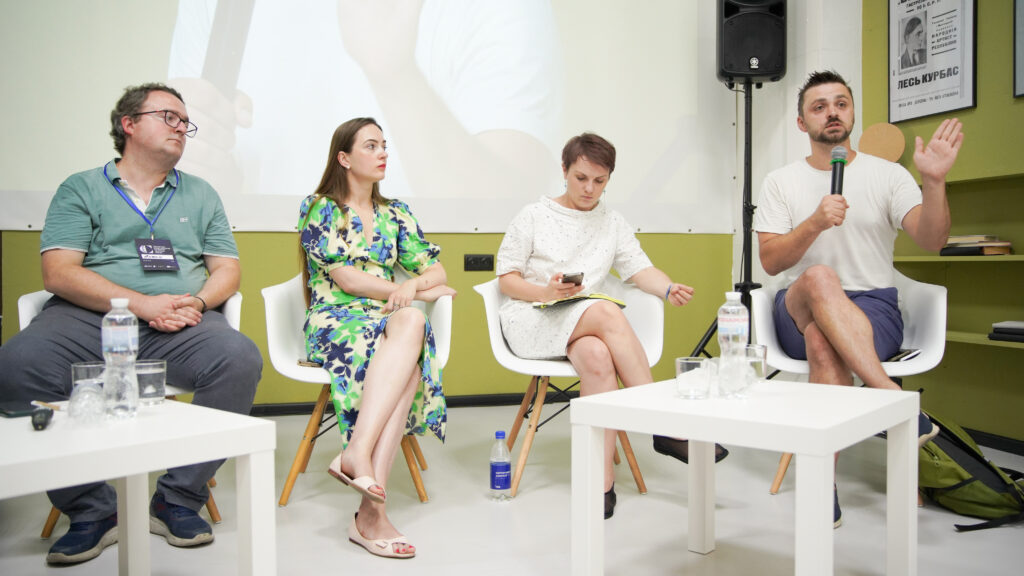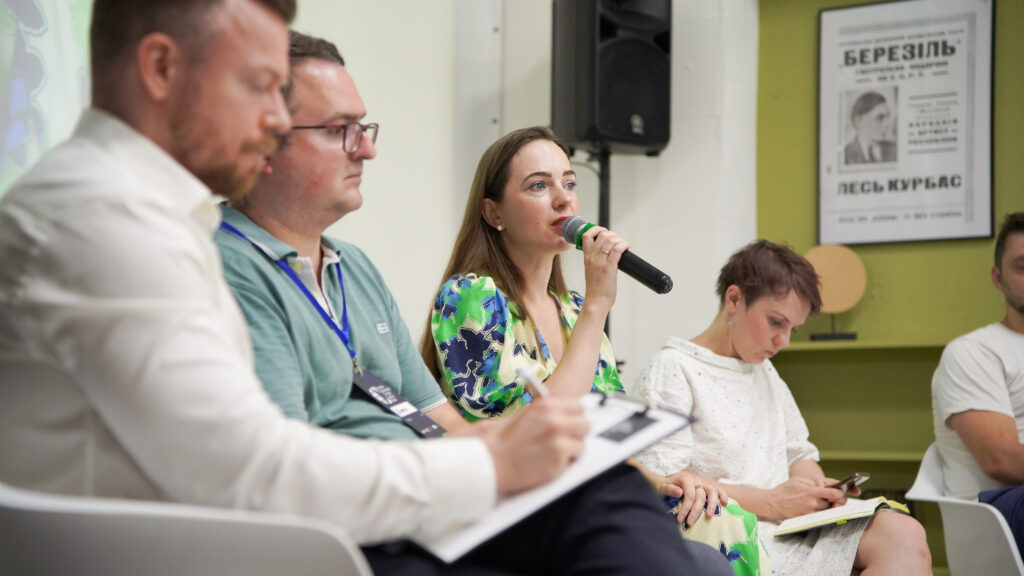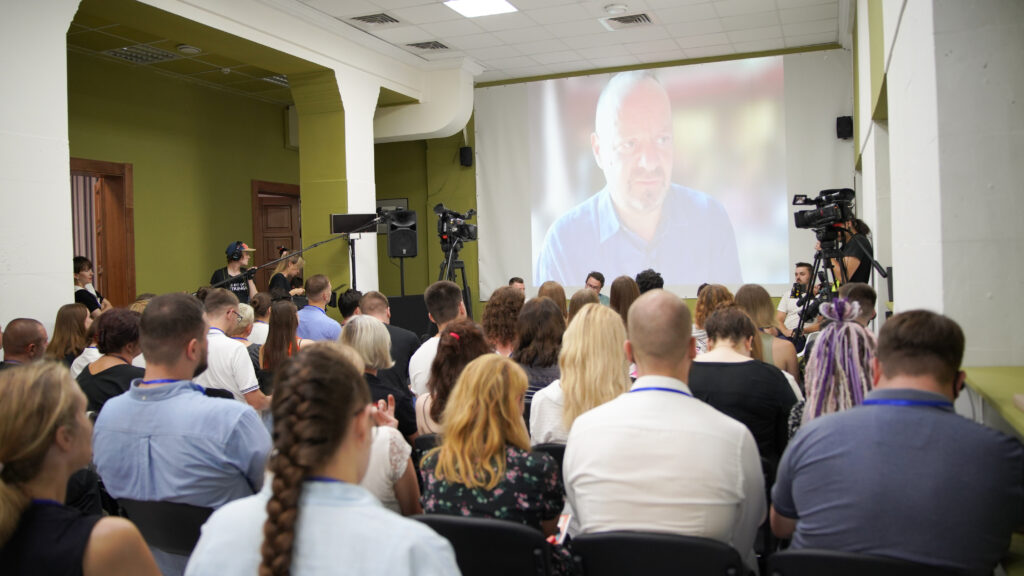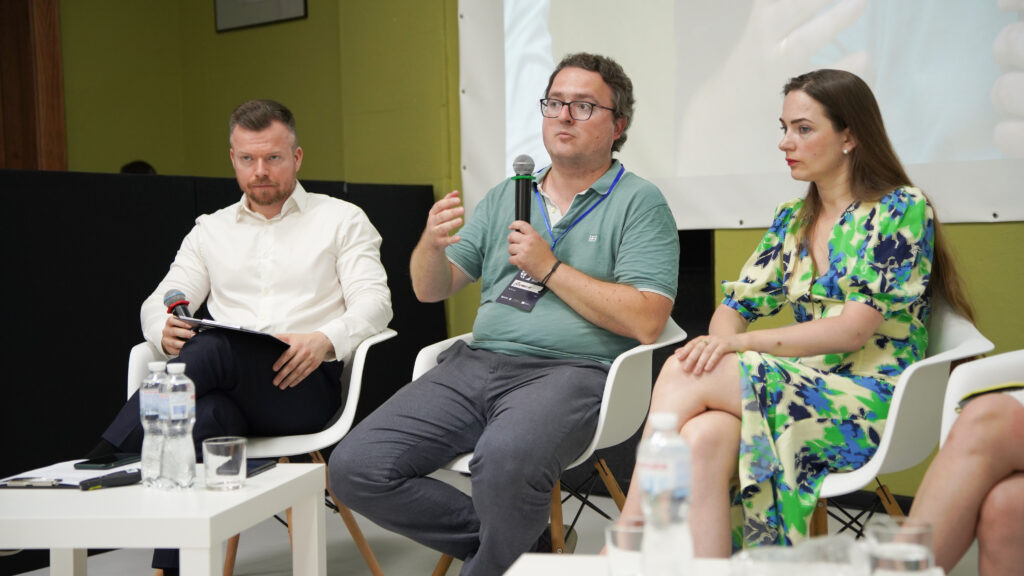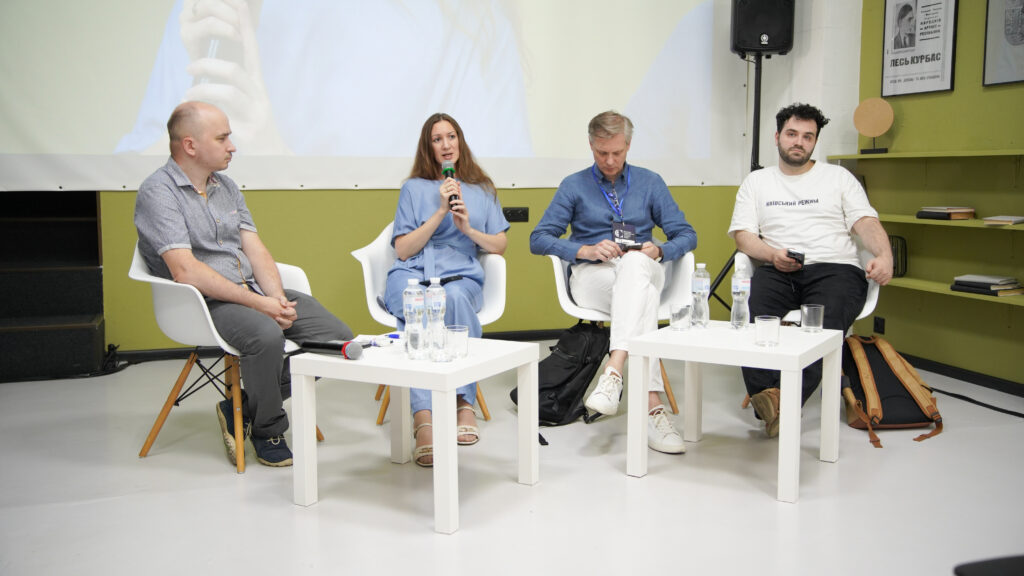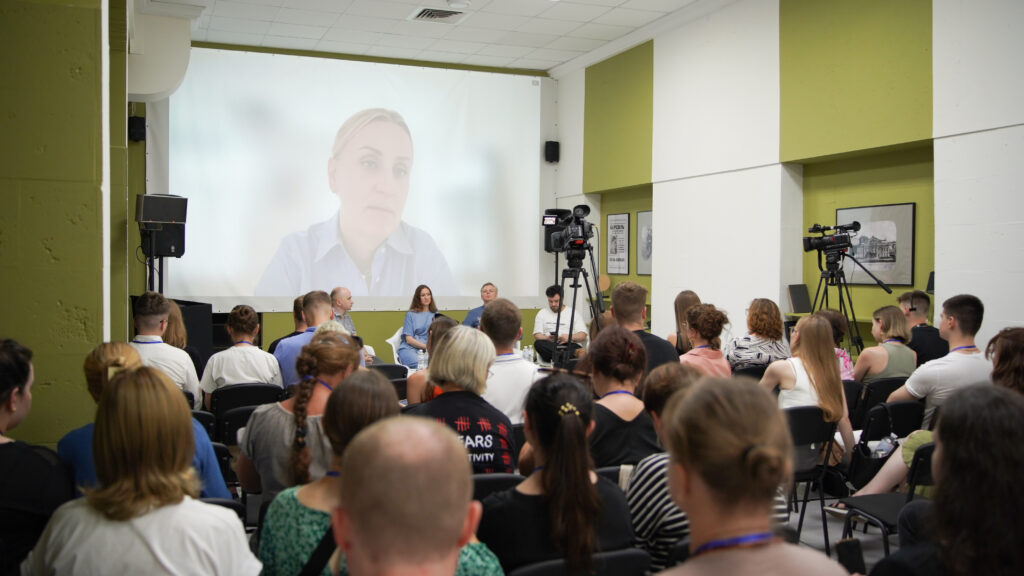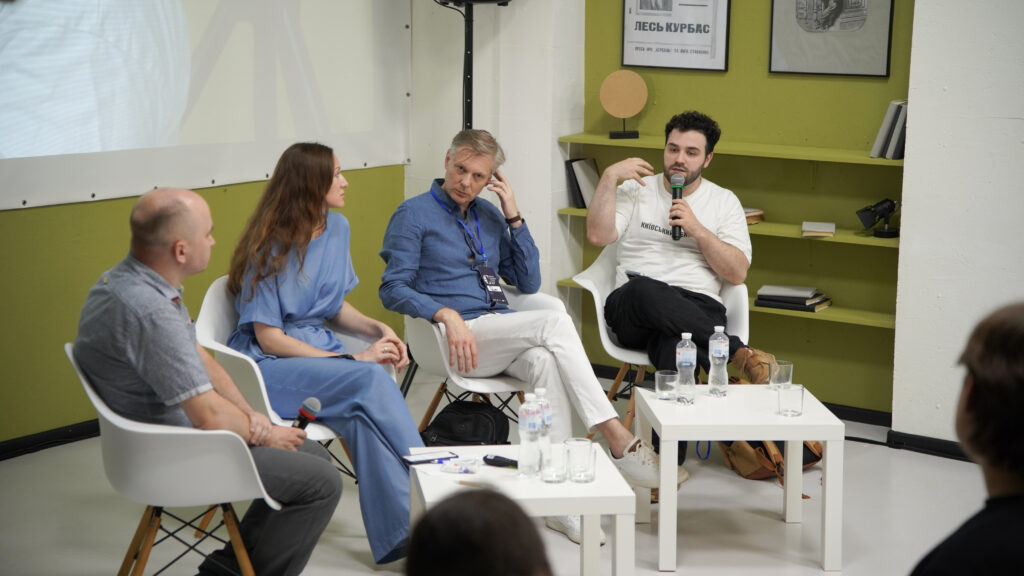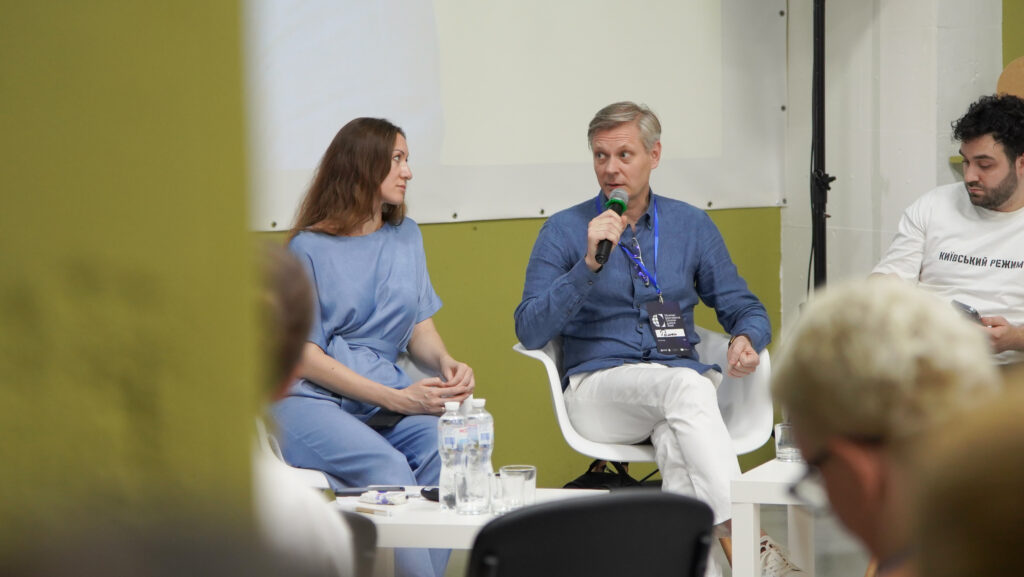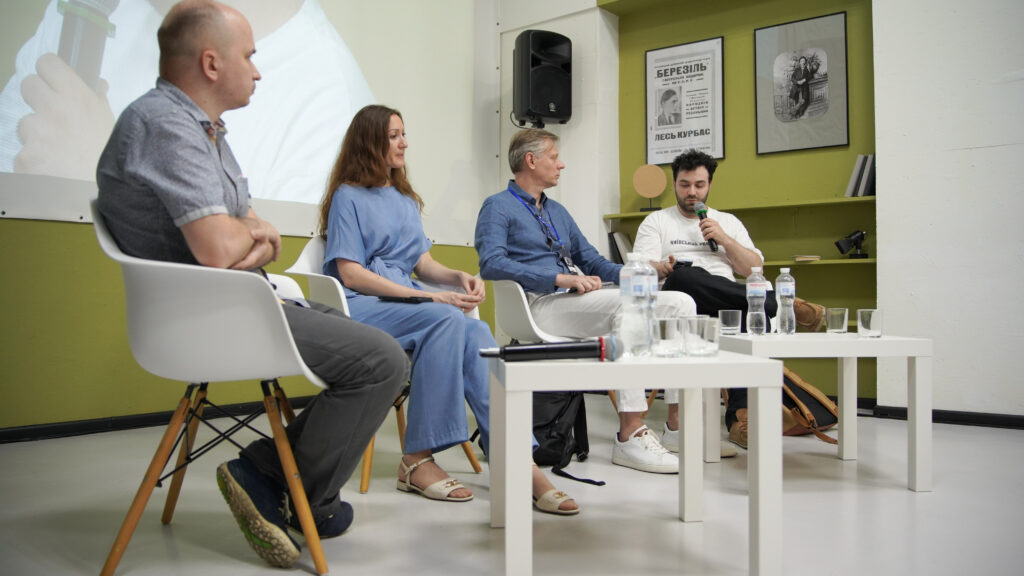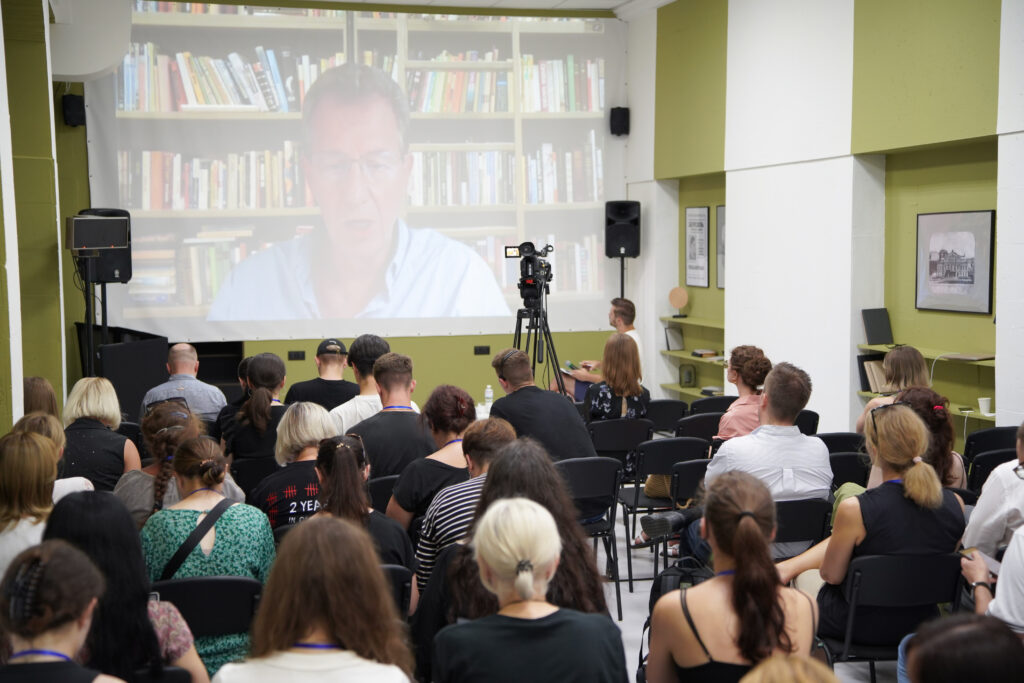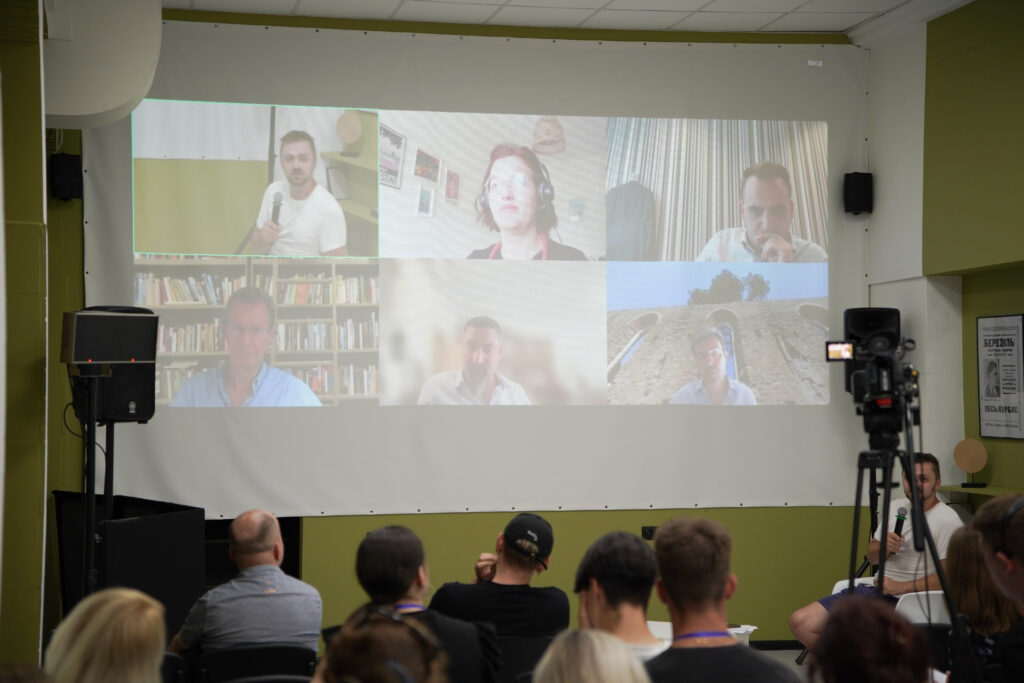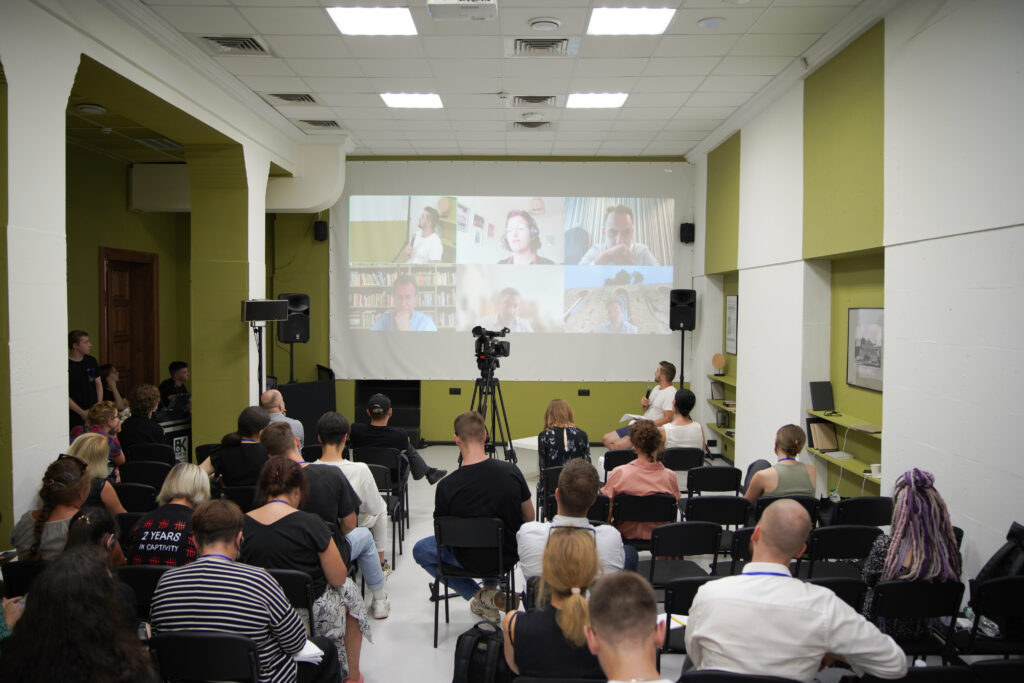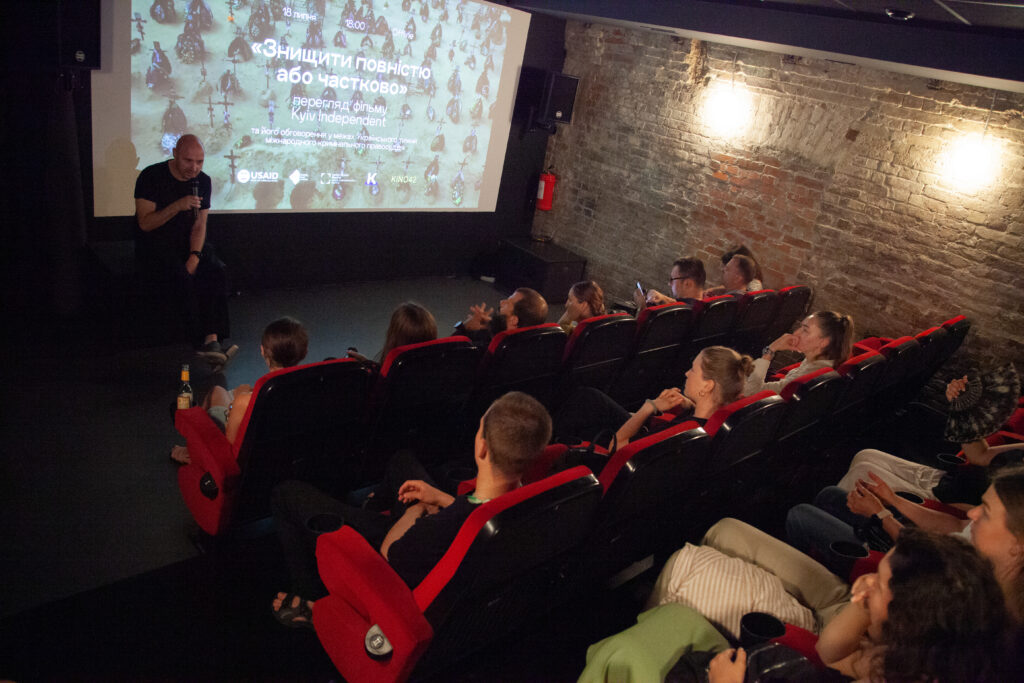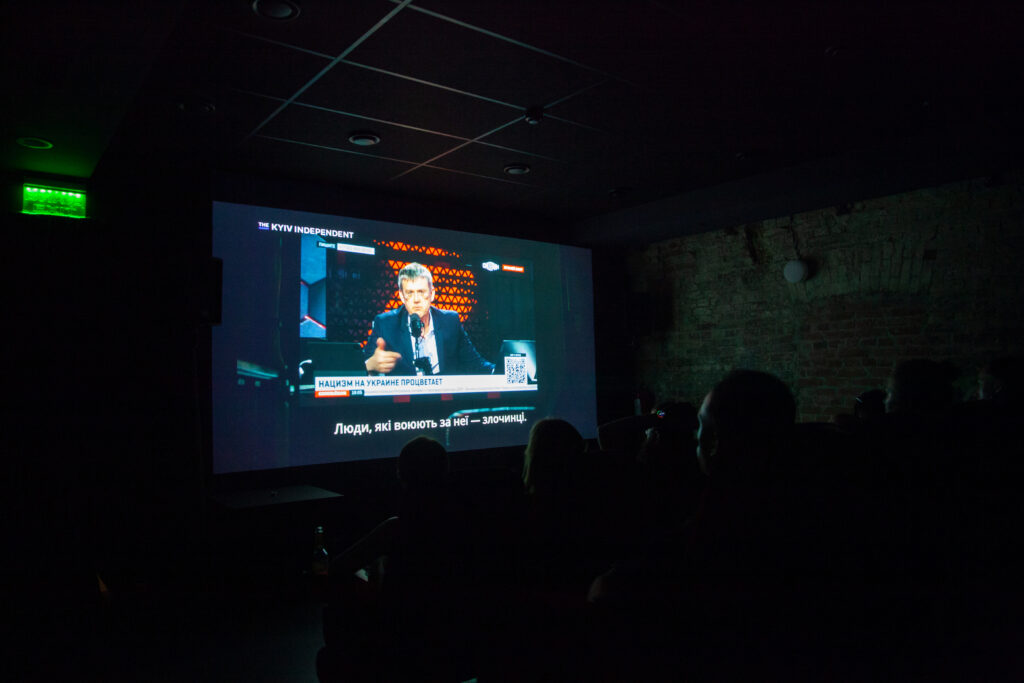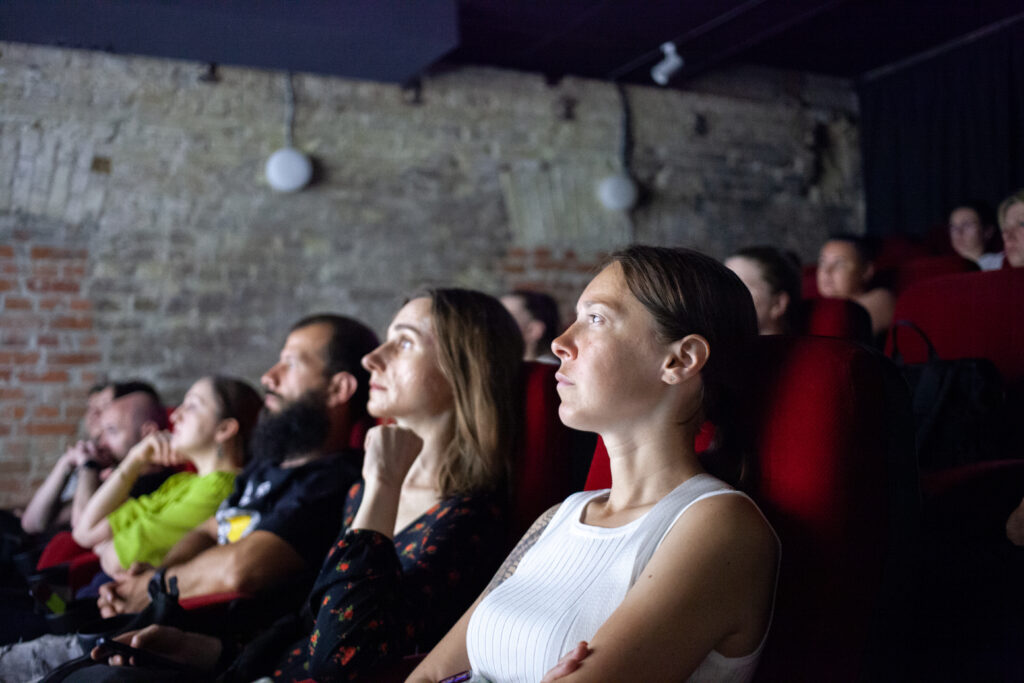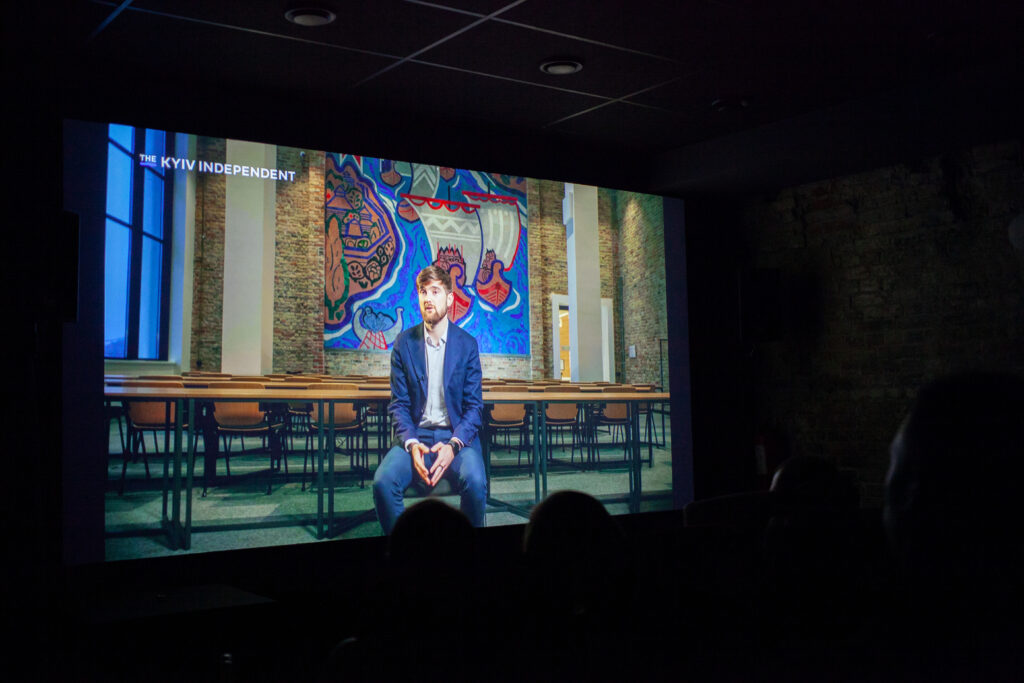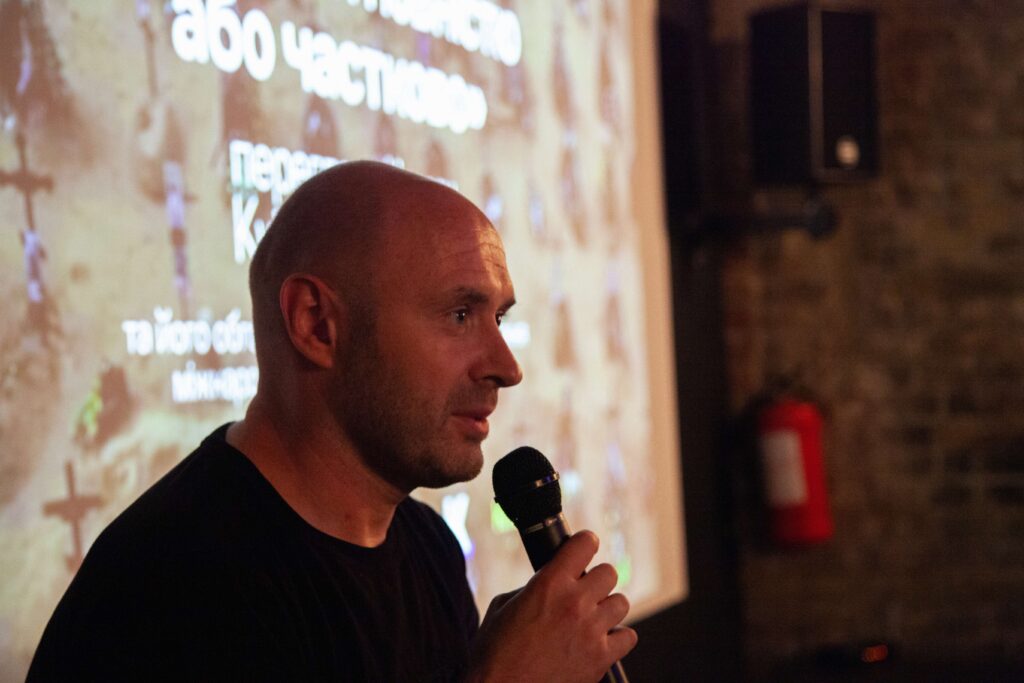“How to Break the Cycle of Impunity??” Highlights from the Ukrainian International Criminal Justice Week
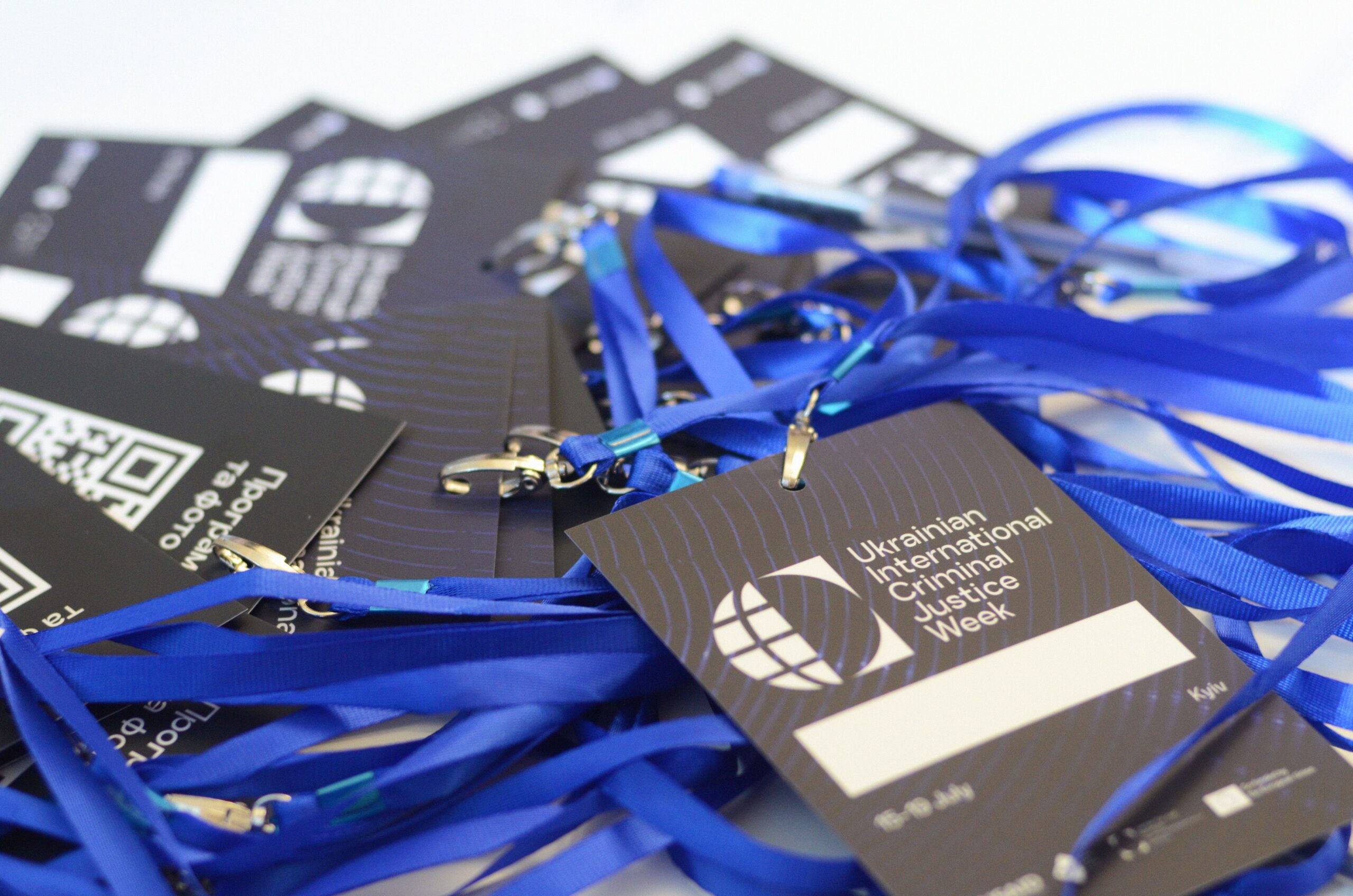
Every year, on 17 July, the world observes the Day of International Criminal Justice. This date was established to commemorate the adoption in 1998 of the Rome Statute of the International Criminal Court, which is the first-ever permanent international justice body with a jurisdiction based directly on international law to bring to criminal justice perpetrators of the most serious crimes.
For the fifth year in succession, on the occasion of this date, the Center for Civil Liberties has been organizing the Ukrainian International Criminal Justice Week, which took place this year on July 15-19 in Kyiv. Lawyers, experts in international relations, and people from civil society organizations and public institutions gathered during this period to attend various events: conferences, lectures, workshops, webinars, presentations and discussions. “How to break the spell of impunity?” was the key question of the week. After all, Russia has been committing international crimes for years, not only in Ukraine but in Chechnya, Moldova, Georgia, Mali, Syria, Libya and other countries of the world. Russians believe they can do whatever it pleases them and never be punished for that.
We are going to detail what events took place as part of this week, what topics the invited experts discussed, what conclusions they arrived at and in fact, what human rights defenders are urging the Ukrainian authorities and the international community to do.
The Ukrainian International Criminal Justice Week began on 15 July with the webinar “What Are the Strategies to Combat Impunity for International Crimes Committed in Ukraine since 2014?” Its speaker was David Donat Cattin, a leading expert in international law, a Professor at the New York University and the University of Verona, and also a valuable partner of the Center for Civil Liberties.
Since the annexation of Crimea in 2014, which was a manifestation of foreign interference in the internal affairs of a sovereign state, Russia has been violating international law and committing horrendous crimes against humanity in Ukraine, not being subject to any punishment. Thus, the international community faces a lot of questions about the legal origin of such injustice, possible avenues for bringing Russia to justice and, in the end, breaking the spell of impunity.
At the webinar, Mr David Donat Cattin presented a historical overview and shared his insights on possible ways of combatting impunity and injustice in the context of Russia’s invasion. In particular, the professor emphasized that it was crucial to understand that Russia’s invasion did not begin on 24 February, but in 2014, with the annexation of Crimea and the emergence of the self-proclaimed “DPR” and “LPR” in Donbas, which was an act of international conflict and external interference in Ukraine. And the watershed moment was Ukraine’s decision to move towards the EU and sign the Association Agreement.
Moreover, Mr Cattin talked about how, in his opinion, impunity should be combatted, “I believe we should not now create a special tribunal, which would be completely separate from the ICC. That would be a mistake. What we need is an international jurisdiction, and this was recently confirmed by the statement supported by the Ukrainian Bar Association. And, of course, Ukraine must ratify the Rome Statute”, the professor said.

“A lot has been done, especially in the context of coordination with colleagues, in the dimension of international responsibility. What can be done more is to get more international support to better link individual sanctions to efforts to introduce and promote criminal justice. Besides, if Ukraine joined the ICC as its full-fledged member state, it could have elected judges and been involved in the decision-making processes related to the crime of aggression. Being a part of the Rome Statute would serve as a guarantee against future recurrences and a strong prerequisite for EU integration”, Mr Cattin said.
On the next day, 16 July, those who so wished could attend the workshop on how to document international crimes led by Serhii Movchan, an experienced documentarian and head of the War Crimes Documentation Department of the Ukrainian Helsinki Human Rights Union. The workshop included both theoretical aspects and real-life cases in the context of the war in Ukraine. It enabled the participants to considerably enlarge their knowledge and improve their documenting skills.
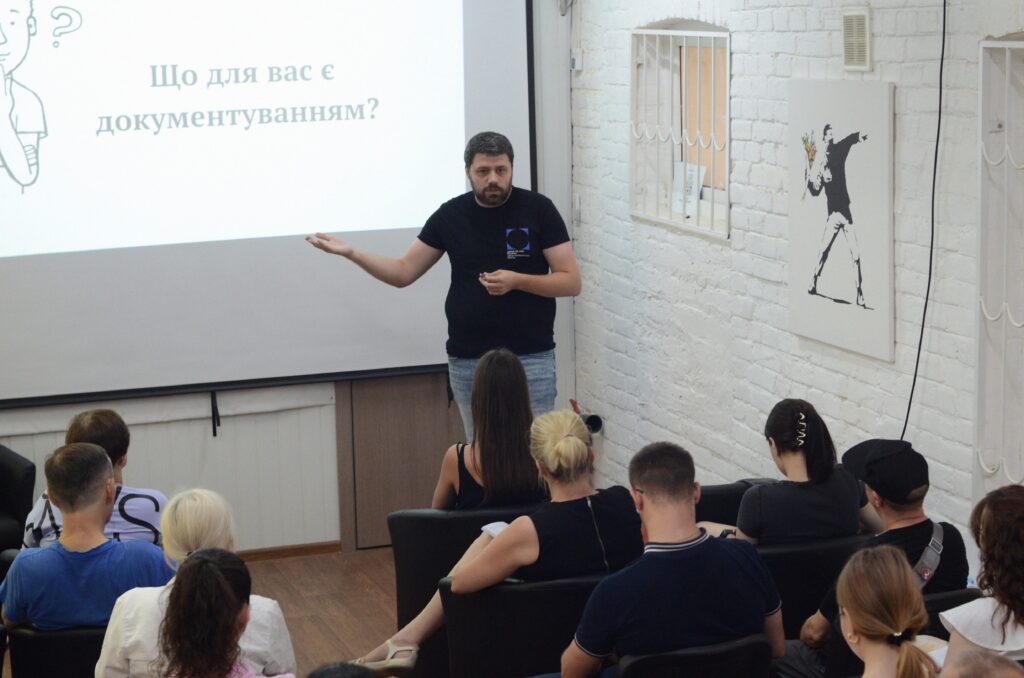
Documenting war crimes is an extremely important process in the context of Russia’s invasion. It allows collecting evidence to bring perpetrators to justice and to ensure that there will be punishment for committed crimes and justice will be restored.
The first stage was a discussion of the classification of international crimes, their peculiarities and the relationship between real-life cases and the jurisdiction which relies on the Rome Statute. Details pertaining to punishment for genocide and different methods of investigating into it were also discussed. The participants learned the steps that should be taken in the process of documentation through interviewing the victim and the specifics of each step. Mr Movchan provided the most valuable details concerning approaches to interview structuring and the correct questioning of the victim to reduce inconsistencies.
Also on 17 July, a major conference was held under the title “Ten Years of Russia’s International Crimes in Ukraine: What Strategy Leads to Justice?”. Experts who have been invited to speak at its three panels discussed crucial issues. What is better: trials in absentia held now, or proceedings with the presence of the accused, but in the uncertain future? Should sentences be based on the current legislation or on the amended laws aligned with the Rome Statute? And what should the Ukrainian strategy to fight for justice look like?
Oleksandra Matviichuk, Head of the Center for Civil Liberties, said at the first panel entitled “What Alternatives to International Criminal Justice Exist?”, “In my opinion, the following criteria exist for a future where there is justice. The first one is that justice is not linked to when and how the war ends. Right now we are establishing a Special Tribunal for Aggression and calling things by their proper names. The second one is that we pursue an ambitious goal, that is, to do everything we can to ensure that each individual who suffered gets a chance for justice. And now the third one: the international architecture of justice should be changed, including the national one. But it is necessary to start with the international architecture. I often see people looking at justice as if it is something with an impact on the past or the future, and certainly not on the present. However, in fact, justice has a direct impact and capacity of changing reality”.
“History proves that punishment does not arrive there where crimes are the most terrible and tragic, but where most evidence is collected. Even some crimes that we may see as devastating, may not be tried first because of the lack of evidence. This is what happened with all previous tribunals. However, we are indeed technologically capable of collecting much more evidence, so we must do that”, Nataliia Humeniuk, a journalist and co-founder of The Reckoning Project: Ukraine Testifies, emphasized.
In his turn, Philippe Sands, King’s Counsel, a practising lawyer of Matrix Chambers and Director of the Centre on International Courts and Tribunals, joined online and pointed out his solidarity with his Ukrainian friends and close collaboration with our human rights activists. “The Council of Europe develops now a project, which is a tool for establishing such a Special Tribunal, and this is a fabulous result. It is a confirmation of how strong the Ukrainian diplomacy is, as it will be the first international tribunal against the crime of aggression since the mid-1940s.
Also, such speakers as Matthiew Gillett, Senior Lecturer at the Essex Law School, Anton Korynevych, Ambassador-at-Large of the Ministry of Foreign Affairs of Ukraine, Ukraine’s representative at the UN International Court of Justice and PhD in Law, Serhii Petukhov, Deputy Minister of Justice (2015-2019) and Elīna Šteinerte, Member of the Subcommittee on Prevention of Torture and other Cruel, Inhuman or Degrading Treatment or Punishment of the Committee Against Torture, expert of the OSCE Moscow Mechanism, were among those who spoke at the event and expressed their positions on how to bring criminals to justice, what advantages we have now and whether there are any alternatives whatsoever to international criminal justice.
The second panel was dedicated to the following issue, “The Ukrainian Strategy for Punishing Russia’s International Crimes: Does It Exist Now and What It Should Be Tomorrow?” Russia has been perpetrating international war crimes in the territory of Ukraine for over ten years. The Office of the Prosecutor General of Ukraine has registered over 136,000 such facts and crimes of aggression. As part of the discussion, its participants discussed challenges related to investigations of war crimes that the Ukrainian judiciary faces, whether Ukraine has a strategy for punishing war criminals and what it should be like.
According to Roman Romanov, Human Rights and Justice Program Director at the International Renaissance Foundation, it is important to realistically assess both national and international capacities to satisfy Ukraine’s demand for justice. The international law community has been for long elaborating a universal legal framework for punishing international crimes throughout the world. Unfortunately, Ukraine has made some strategically unsuccessful decisions in this process, such as delaying the ratification of the Rome Statute and not joining the international groups elaborating on the legal framework for crimes against peace. Another issue is the non-compliance of Ukrainian criminal law with the provisions of international law, in particular, the lack of references in it to crimes against humanity and the imperfection of Article 438 of the Criminal Code of Ukraine in terms of punishment for international crimes.
Iryna Marchuk, professor and doctor of law at the University of Copenhagen, outlined the following components of a successful strategy for bringing perpetrators to justice.
- The legal framework, i.e., the ratification of the Rome Statute and aligning the domestic law with the international standards.
- Availability of appropriate and sufficient human resources. Allocation of resources for investigating international crimes should be prioritized, as the current criminal justice system is overloaded.
- Available technological capacity. Ukraine should involve modern technological resources, including artificial intelligence, to process a large evidence pool, as well as professional software for archiving and preserving evidence.
- Institutional capacity. Specialized mechanisms, court chambers and an ad hoc tribunal should be created with the involvement of the international component.
- A fair trial should be ensured nationally in proceedings involving international crimes.
- Victims’ rights should be protected through the provision of appropriate legal, mental health and other aid to vulnerable populations.
- The issue of reparations for victims of international crimes. Creation of a unified compensation mechanism based on the register of compensation for damages.
- Transparency of the process of administering justice and clear communication with the international public.
- Creation of a general resource about national trials and trials initiated in Europe under the principle of universal jurisdiction and current processes in the ICC.
Arie Mora, Communications and Advocacy Manager at the Ukrainian Legal Advisory Group, added that, in order to have a strategy that is successful and compliant with real challenges, needs should be assessed and, in particular, the architecture of justice should be analysed and specific needs for its strengthening should be defined. In this context, the expert mentioned the relevant research conducted by the Ukrainian Legal Advisory Group.
Also, Viktoriia Mozhova, National Consultant of the United Nations Population Fund, and PhD in Law, and Mykola Khavroniuk, Professor of the Department of the Criminal and Procedural Law of the National University of Kyiv-Mohyla Academy (online) participated in the panel.
The third panel was entitled, “The View of the International Community: How Can Ukraine Make Sure That International Criminals Are Punished?”, as the international law gives no simple responses to the Russia’s aggression. The participants of the debate discussed possible advice from the international community to Ukraine on how to find ways to ensure fair punishment for international crimes. What cases and approaches should be used and what should be changed to make its fight for justice more effective?
“The Russia’s war in Ukraine has led to unprecedented mobilization of efforts by those who are engaged in international criminal law, and not only by them. This brings hope as fair justice in Ukraine is a long-term vision, and it is important to have partners on this journey, who would make efforts more effective now, tomorrow and in the future”, Gunnar Ekeløve-Slydal, Deputy General Secretary of the Norwegian Helsinki Committee, said.
Moreover, he highlighted the following recommendations to Ukraine:
- Criminal punishment for international crimes should not become an instrument for revenge. It is crucial to use criminal law fairly by complying with the declared criteria for case selection.
- Uncompromising quality control in dealing with evidence must be ensured. Accurate and reliable information is a key.
- Fundamental principles of international criminal law should not be diluted or extended in order to accuse the enemy of as many acts as possible. It is better to stick to a secure legal basis and thereby receive larger support behind the legitimacy of criminal prosecution.
- The same principles that are applied against the enemy should be approved by ratifying the Rome Statute and becoming a full-fledged member of the International Criminal Court (ICC).
Virginie Amato, Advocacy Director of the Coalition for the International Criminal Court, emphasized the following, “The ratification of the Rome Statute is crucial for eliminating the issue of impunity in Ukraine and the whole world. The essence of the international system of justice is that states should bear primary responsibility for prosecuting and punishing criminals, as well as for protecting the rights of victims. ICC is not a substitute for national courts, it is the court of the last instance. Its activity is based on the complementarity principle (Ed. note: where national courts have an advantage in investigating and prosecuting international crimes)”.
“Russia’s impunity became evident in 2014 when the Russian Federation and China vetoed the decision to extend the ICC’s jurisdiction to the war in Syria and the participation of the Russian military in the siege of Aleppo, which led to the death of tens of thousands of innocent civilians. This was the main reason for today’s status quo. The problem was that there were attempts to “pacify” Russia as one of the global forces, a member of the UN Security Council, and the supplier of energy resources to Europe, as well as due to other political backgrounds”, David Donat Cattin, Adjunct Associate Professor at New York University Center for Global Affairs said, in his turn.
Also, Dov Jacobs, Defence Counsel at the ICC, Assistant Professor at Leiden University and founder of SILC, Strategic International Legal Consulting, and Lachezar Yanev, an Associate Professor of International Criminal Law at the Department of Criminal Law and Criminology of the Vrije Universiteit Amsterdam, discussed this complicated and important topic.
On 18 July, as part of the Ukrainian International Criminal Justice Week, the “Destroy, in Whole or in Part” film produced by the Kyiv Independent media outlet was screened. This investigative documentary is dedicated to the topic of Russia’s genocide in Ukraine. The film is an attempt to find a well-reasoned answer to this complicated question.
The main purpose of this investigation was to determine whether there was a genocidal intent in the actions of the Russian military and officials, and in the Russian propaganda. The protagonists of the film are Ukrainians who faced Russia’s war crimes and share their experiences: the widow of a man killed near their house in Bucha; a woman whose twin sister was killed in Skadovsk; a teenager deported to Crimea where he personally witnessed attempts to Russify Ukrainian children, and also two men arrested during the occupation of Kherson.
After the film screening, this topic was also discussed with legal professionals, journalists, law school students, witnesses of the Russian occupation and everyone who wished to attend.
On 19 July, a conversation was held with Mykola Gnatovskyy, a famous Ukrainian expert in international law, First Vice-President of the Ukrainian Association of International Law, one of the initiators and authors of the Declaration on and the Statement Calling for the Creation of a Special Tribunal for the Punishment of the Crime of Aggression against Ukraine, and the ECtHR judge from Ukraine.
“There is no international court or tribunal, which could have tried the political and military leadership of Russia for committing the crime of aggression against Ukraine. The establishment of a special tribunal fills this gap”, Mr Gnatovskyy stressed.
Defining personal immunities of the highest state officials is one of the most complicated legal issues related to the establishment of a tribunal. The logic of immunities is based on the principle of sovereign equality of states (Par in parem non habet imperium). The lack of consensus within the international community is the problem. Currently, the issue of immunities is just a smokescreen for some countries, which do not support the establishment of a special tribunal.
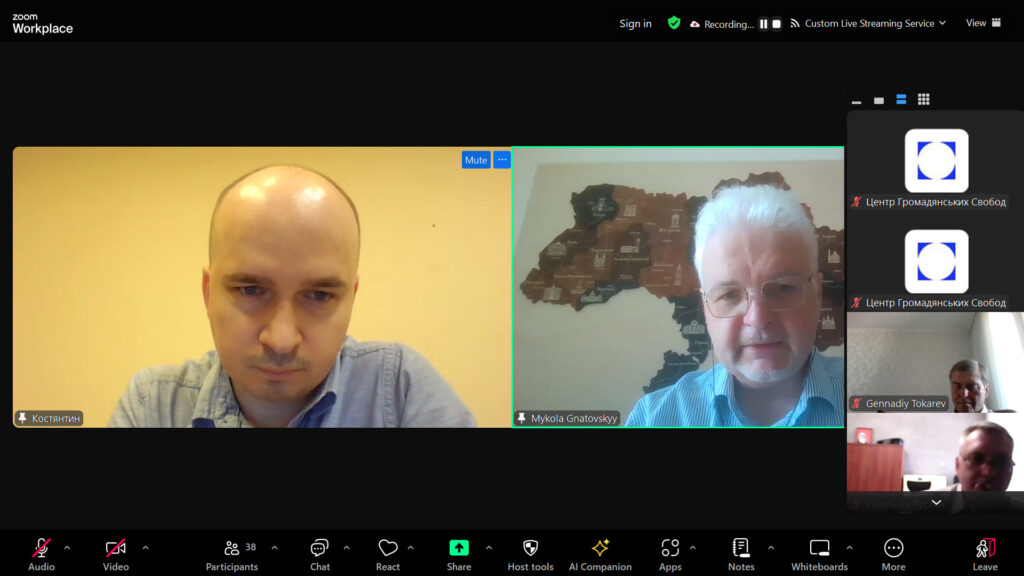
“No provisions exist in the international law, which would prohibit the creation of the tribunal. The lack of political will is the problem. The states, which impede the establishment of the tribunal, cannot, on one hand, admit that they do not support this idea and that the crime of aggression should not be punished. On the other hand, they masterfully accumulate a variety of legal and quasi-legal arguments supporting their scepticism of its effect. It is, therefore, important to understand, which arguments are insurmountable, and which ones can be approached”, Mykola Gnatovskyy emphasized.
He also added that, in order to productively collaborate with ICC, Ukraine should adopt a law on the ratification of the Rome Statute and make amendments to its Criminal Procedure Code to harmonize it with the international law, making thus the same recommendations that were voiced by other experts during the Ukrainian International Criminal Justice Week.
Center for Civil Liberties operates with the support of the European Union.

